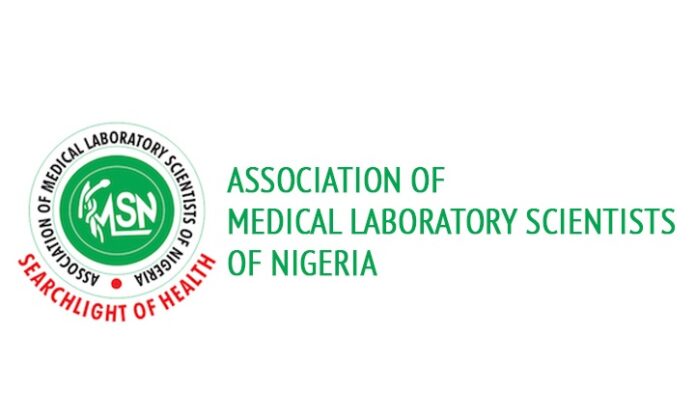The Association of Medical Laboratory Scientists of Nigeria (AMLSN) has called on President Bola Tinubu and the Federal Government to ensure the full implementation of the National Health Act 2014, emphasizing its importance in addressing systemic challenges within Nigeria’s healthcare sector, particularly the growing issue of quackery in medical laboratory practice.
Speaking in Owerri during a press conference to commemorate International Biomedical Laboratory Science Day, observed globally every April 15, the National President of AMLSN, Dr. Uche Odionyenma, highlighted the critical role biomedical laboratory scientists play in disease prevention, diagnosis, treatment monitoring, and public health surveillance.
This year’s celebration aligns with the International Federation of Biomedical Laboratory Science (IFBLS) global theme for 2025–2026: “Biomedical Laboratory Scientists Promoting Sustainability in Clinical Diagnostics Definitions.”
“It gives our profession a day to promote and celebrate ourselves, and to raise awareness of the vital role biomedical laboratory scientists play in healthcare delivery,” Odionyenma said. He praised the profession’s growing contribution to sustainable diagnostic practices that reduce waste and improve health outcomes globally.
Dr. Odionyenma reaffirmed that medical laboratory science remains a distinct profession rooted in scientific observation and experimentation, contributing directly to diagnostic accuracy and patient care. He called on the government to recognize and empower the profession through strategic reforms in the health sector.
He specifically urged the liberalization of leadership within the Federal Ministry of Health to allow for the appointment of capable, unbiased, and experienced administrators who can provide an enabling environment for all health professionals.
Calling for equity and fairness, the AMLSN President demanded that all health professionals be given equal opportunities for career advancement, professional autonomy, and participation in decision-making processes.
He also listed several key demands including:
• Full implementation of the approved Scheme of Service for medical laboratory personnel across federal, state, and local governments;
• Adequate funding for the Basic Healthcare Provision Fund to improve access and universal health coverage;
• Increased budgetary allocation to the health sector;
• Improved regulation and oversight of in-vitro diagnostics (IVDs);
• Affordable and reliable diagnostic services for the general public.
“In promoting sustainability in clinical diagnostics, what we need are sustainable testing methods, efficient procurement systems, resource optimization, and deployment of qualified professionals,” he added.
Odionyenma expressed optimism that with the right reforms, Nigeria’s health sector could become more resilient, equitable, and effective in delivering quality healthcare to its citizens.










